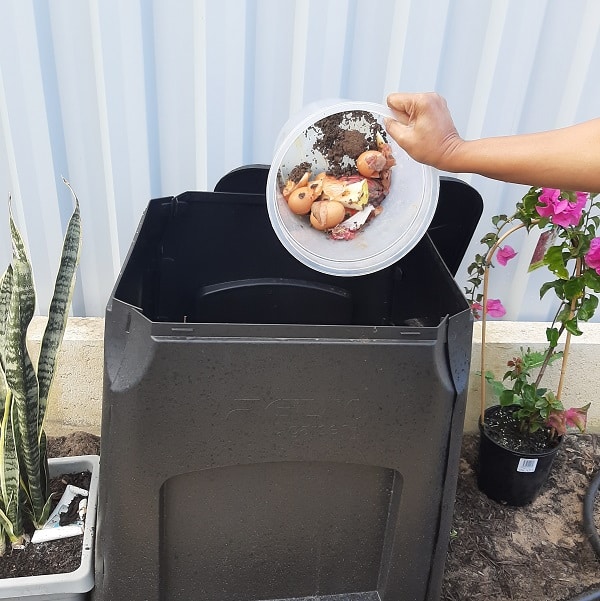There is a consensus amongst most scientists that man’s negative influence on climate change is for real. One way to tackle that at a basic level is composting – a practice most people refrain from due to a multitude of reasons. A backyard waste recycling process, composting can help the environment and also minimize gardening expenditure.
Unfortunately, the word composting conjures up negative imagery: rummaging through decaying kitchen waste, worm-infested soil, etc. But let’s be real, every household produces enormous kitchen and garden waste, a large share of which goes into landfill impacting the environment. While some might find composting not worth their time, others find the entire mechanism too complex to comprehend. Then, there are those oblivious to the very idea of it: a description befitting many Indian immigrants who grew up in apartments in India, never enjoying the luxury of private garden space.
In Australia, we are fortunate to have perfectly manicured gardens. However, what struck me as interesting was that to maintain these spaces, we buy massive amounts of soil and compost from shops when the same can be made in our backyards.
Lets get Composting.
Initiating composting comprises a few easy steps, the first of which includes purchasing a compost bin from your local garden store, which is designed as a bottomless container that is kept on the soil surface. The ingredients for the compost are introduced from the top and then kept covered. They get collected at the bottom, and when ready, the lower portion of the bin is used to pull out the compost.
Ideally, there should be two separate bins – for your kitchen and garden waste. Throw all the kitchen scraps – green waste like uncooked vegetables, fruit peels, tea powder residue, eggshells, green leaves and the like, into the kitchen bin. Avoid meat and cooked products as they do not compost well.
-

-

Composting bin
Use the second container to store outdoor garden waste – brown waste like dry leaves/lawn clippings, bark, egg cartons, small cardboard pieces, newspapers and the like. Avoid weeds as they grow inside the compost bin instead of breaking down.
When the green waste bin is full, tip it into the compost container and cover it with the brown waste; ensure the quantity of the latter should slightly exceed the former. Add some soil if you do not have enough brown residue, and pour water on top of the waste mixture. Repeat the process until the compost bin is full.
Use a pitchfork or any other long instrument to mix the components to allow air to seep into every layer. In about two to three months, depending on the weather conditions, rich, dark compost, from bottom-up will be ready. Pull out as much as you need from the bottom lid and repeat the process. If you can manage two containers at a time, you will have a continuous supply of compost.
Composting helps the environment by preventing methane formation in landfills from kitchen and garden waste. Methane has a more negative impact on the environment than carbon dioxide. Also, composting reduces the demand for chemical fertilizers, which in turn decreases chemical seepage into our water table.
There are many advantages to composting, like being a complement to fertilizers. Use it as a potting mix or apply it on top of an existing garden bed. Or, if you have sandy soil, mixing it with compost will enhance its quality. This mixture will facilitate the growth of more tropical flora along with native plants.
It can also be used as lawn topsoil dressing; apply it on the dry patches of your lawn and level it with a rake but make sure it doesn’t cover the grass top layer. Water the lawn well for a couple of weeks and you will get a lush, green garden. Also, remember to consult your local garden supplier or soil experts to learn more about the best practices that suit your gardening needs.
Making composting a habit has numerous benefits. It improves connection with the land and helps us appreciate and empathize with our Aussie farmers who consistently battle drought and harsh soil conditions. Composting is not a magic pill, but it sure is a sustainable solution to waste management.
Read also: Recycled garden: Jugaad in action







